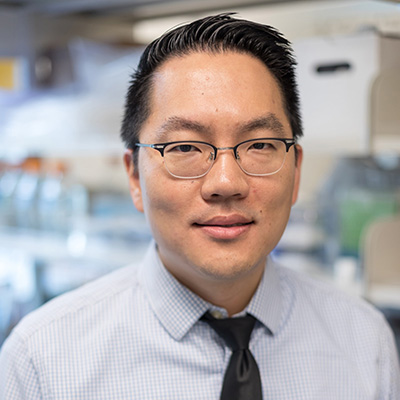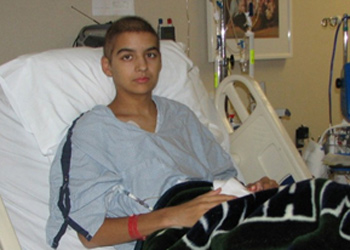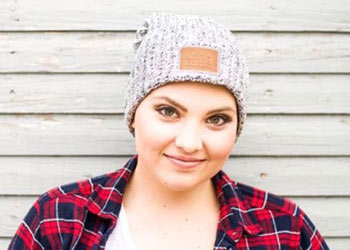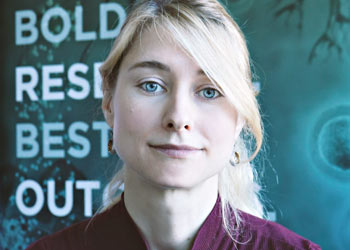The prognosis for metastatic Ewing sarcoma can be devastating. Dr. Lee’s research may change that.
Ewing sarcoma (ES) is a bone cancer that can be difficult to treat once it has spread. The 5-year survival rate for children with the advanced disease remains alarmingly poor, as low as 15%. Children with ES need new treatment options now. In a groundbreaking development for pediatric ES research, we’re excited to share news of our latest funded research project led by Dr. John Lee of the David Geffen School of Medicine at UCLA. Dr. Lee is the latest recipient of our Acceleration Initiative Award. His team’s novel approach to understanding ES may offer a new, precise treatment for this aggressive disease. This milestone underscores the urgency of advancing innovative treatments for ES and reflects the ongoing commitment to driving progress in pediatric cancer research.

Dr. Lee’s project aims to strengthen the immune system and better defeat cancer cells.
Dr. Lee’s preclinical work is focused on harnessing the power of CAR T-cell therapy. His team’s method goes a step further by enhancing the potency of CAR T-cells through the strategic incorporation of Interleukin-18 (IL-18), a cytokine known for its ability to bolster immune responses. By arming these CAR T cells with Interleukin-18 (IL-18), Dr. Lee aims to significantly enhance their killing ability, potentially improving outcomes for patients with metastatic ES, who face a dire prognosis due to the disease’s poor overall survival rates.
Dr. Lee says, “Our hope is this treatment can one day lead to better outcomes for kids with this disease by making their immune systems better at fighting the cancer.”

We’re committed to investing over $900,000 in Dr. Lee’s project to accelerate Ewing sarcoma research.
Our Acceleration Initiative projects are highly innovative, address a significant challenge in pediatric cancer drug development, and have an extremely strong probability of clinical application in an accelerated timeframe. These projects are anticipated to reach clinic – and the children counting on new treatments – within just 3 years.
Collaboration leads to cures.
As part of our growing co-funding model, this award is generously supported in part by Rally Foundation for Childhood Cancer Research and three CureSearch Legacy Funds: Garret and I: The Garret Collins Legacy Fund, The Nick Currey Fund, and The Sam Schneider Legacy.
Our legacy fund program provides families a personal and impactful way to honor their child’s journey by directly funding the most promising childhood cancer research. Garret, Nick and Sam’s memory lives on through their loved ones, who’s support of this project could change the future for children yet to face this terrible disease.
“Sam is deeply missed, but we continue to honor him and his desire to raise awareness of Ewing sarcoma in hopes of enabling increased early detection for others as his cancer was detected well past becoming metastatic, which is so common for Ewing’s patients.” – Sam Schneider’s family
“If more targeted, less toxic therapies had been available, Nick might be alive today.” – Nick Currey’s family
Learn more about starting a legacy fund here.
You make our funding of groundbreaking research possible!



